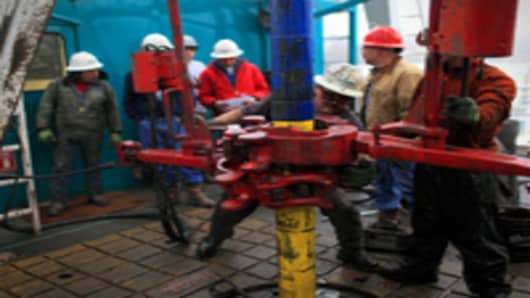It's common knowledge how environmental groups view fracking. They don't trust it. They want to regulate it. And some want to get rid of it.
However, activism surrounding fracking has now migrated into the ranks of actual shareholders in the companies that perform the fracking.
According to the Investor Environmental Health Network (IEHN), 10 shareholder resolutions have been put to companies in 2012. Some involved are huge names, including Chevron Exxon Mobil, Anadarko Petroleum, Noble Energy, Chesapeake andEOG.
For example, the Sisters of St. Francis of Philadelphia submitted a resolution to Chevron that stated:
"Shareholders request that the Board of Directors prepare a report to investors by September 2012, at reasonable cost and excluding confidential or legally prejudicial data, on the short-term and long-term risks to Chevron Corporation's operations, finances and gas exploration associated with community concerns, known regulatory impacts, moratoriums, and public opposition to hydraulic fracturing and related natural gas development."
The resolution received 27 percent shareholder approval. It sounds like a failure, but those involved in the issue disagree.
"Fifty-one percent doesn't get you anything," said Rob Berridge, senior manager of the investor program for Ceres, an organization that works on the corporate level to ensure environmental sustainability. "Twenty-seven percent sends a very loud message that shareholders care about this issue."
Of the 10 resolutions, only three made it to a vote. The other seven were withdrawn "in response to corporate commitments," according to IEHN.
"Generally, it means investors got what they wanted," Berridge said. "It could also mean additional dialogue is forthcoming."
Resolutions. Dialogue. Voting.
But the real question is whether investor activism is triggering actual changes to the practice of fracking.
For one, it has brought enough organization to the companies involved that they have created a documented expression of best practices.
More companies are also more transparent about certain things — like what they put into the water used to frack.
"The industry is disclosing more now than it was a few years ago," said Berridge.
But if the shareholder votes are not binding, then why react to the overtures at all?
Easy answer: It's good business.
"What's at stake in the big picture is the social license to operate," Berridge said. "If you contaminate a town's water supply, they'll kick you out.
"And no one nearby will let you in."



